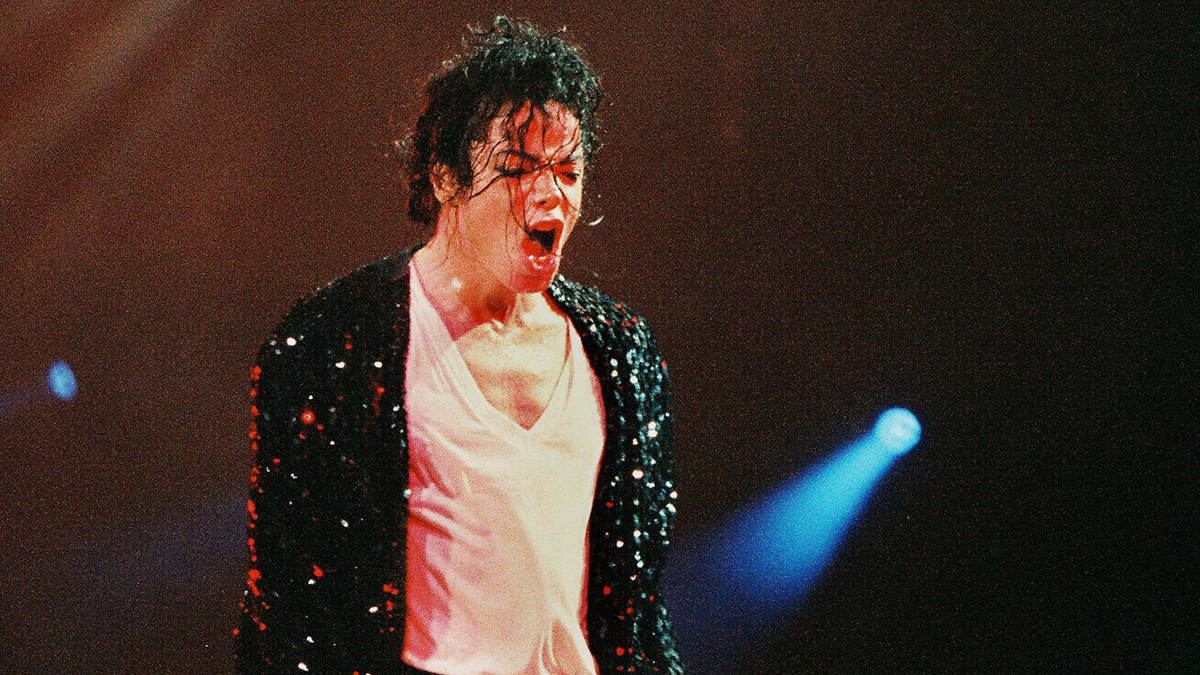"Michael was taking so long and he brought Quincy in to hear it": As Teddy Riley announces his new memoir, Remember The Times, here’s what he said about producing Michael Jackson’s Dangerous album
“I successfully created the New Jack Swing genre 40 years ago so we could have our own generation of music,” says Riley

Teddy Riley, the king of new jack swing, is set to release his memoir, Remember The Times.
The title is a reference to Remember The Time, a track from Michael Jackson’s 1991 album, Dangerous, a hefty portion of which Riley co-wrote and produced. He also produced Bobby Brown’s 1998 smash My Perogative, and had his own US chart-topper, No Diggity, as part of Blackstreet in 1996.
Other production credits include Doug E Fresh’s The Show, Heavy D and the Boyz’ Now That We Found Love and SWV’s Right Here (Human Nature Remix).
According to Rolling Stone, Riley said in a statement: “I successfully created the New Jack Swing genre 40 years ago so we could have our own generation of music, not their generation, and our own history. I’m so excited to share that history with my fans around the world!”
Of his work with The King Of Pop, Riley told Future Music magazine in 2008: "I got the call to produce some tracks on Michael Jackson's Dangerous around 1991," adding that he felt additional pressure because of who he was working with.
"I didn't want to be the one to fail Michael,” he confirmed. “And I'm so grateful it didn't. It thankfully went on to become a success, selling about 34 million records, I think."
Discussing his approach to the album, Riley said: "For Dangerous, I brought RnB back to Michael in its barest form; RnB and funk. We recorded it in California, at Record One, and then we ended up in Larrabee Studios. I was using a lot of vintage stuff to get the sound we needed. Reeds and SSL XLs were mainly the boards we used - I always loved vintage better than digital. It's way better… much warmer."
Get the MusicRadar Newsletter
Want all the hottest music and gear news, reviews, deals, features and more, direct to your inbox? Sign up here.
Of course, working on Dangerous could have been a poisoned chalice. This was the first Michael Jackson solo record not to be produced by Quincy Jones, who’d been at the helm for the all-conquering Off The Wall, Thriller and Bad albums, and this added another level of pressure.
"It was really difficult for me having to follow in Quincy Jones' footsteps,” confirms Riley. “He left big footsteps! He did hear this album and he really gave me a great compliment on my production. He heard it before it was released and he said this was a masterpiece, and that it's ready to come out.

"Michael was taking so long and he brought Quincy in to hear it - he was like a quality controller for Michael. If Michael had the chance he'd keep working on songs forever."
It turns out that Jackson’s perfectionism left a lasting impression on Riley, too: "He always pushed me to be different and innovative and strong,” he says. “He was demanding and we'd work on songs for a long time; we always had to get the mix right. We had the elements, but we had to get the mix right.
"With the sessions, he'd spend a long time doing vocals and sometimes he'd do it on his own. I didn't even have to be there at every session, because he likes to do stuff on his own. He was an inspiration to work with. I kinda learned his way of working and stuck with that formula - so he changed the way I worked on production with artists.”
Remember the Times will be a collaboration between Teddy Riley and music biographer Jake Brown and is set to be published by Simon & Schuster’s 13A / Gallery Books imprint. A release date has not yet been confirmed.



I’m the Deputy Editor of MusicRadar, having worked on the site since its launch in 2007. I previously spent eight years working on our sister magazine, Computer Music. I’ve been playing the piano, gigging in bands and failing to finish tracks at home for more than 30 years, 24 of which I’ve also spent writing about music and the ever-changing technology used to make it.
"At first the tension was unbelievable. Johnny was really cold, Dee Dee was OK but Joey was a sweetheart": The story of the Ramones' recording of Baby I Love You
"Reggae is more freeform than the blues. But more important, reggae is for everyone": Bob Marley and the Wailers' Catch a Fire, track-by-track



![PRS Archon Classic and Mark Tremonti MT 15 v2: the newly redesigned tube amps offer a host of new features and tones, with the Alter Bridge guitarist's new lunchbox head [right] featuring the Overdrive channel from his MT 100 head, and there's a half-power switch, too.](https://cdn.mos.cms.futurecdn.net/FD37q5pRLCQDhCpT8y94Zi.jpg)





